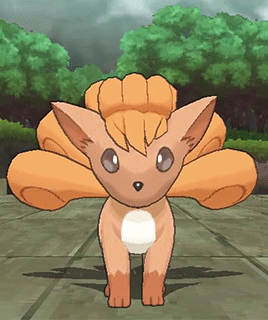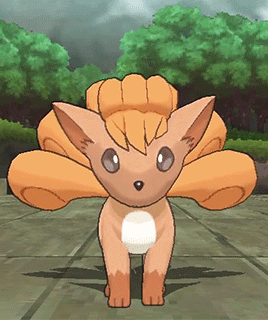RULE #1: Use Them Sparingly.
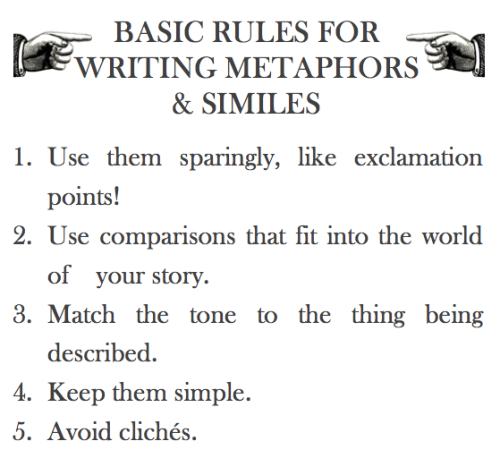
RULE #1: Use them sparingly.
Comparisons draw attention to themselves, like a single red tulip in a sea of yellow ones. They take the reader out of the scene for a moment, while you describe something that isn’t in it, like you’re pushing them out of the story. They require more thought than normal descriptions, as they ask the reader to think about the comparison, like an essay question in the middle of a multiple choice test. They make the image stand out, give it importance, a badge of honor of sorts.
Use too many comparisons and they become tedious.
Elevating every single description is like ending each sentence with an exclamation point. Eventually, the reader decides no one could possibly shout this much, and starts ignoring them.
For these reasons, you should only use metaphorical language when you really want to make an image stand out. Save them for important moments.
RULE #2: Use comparisons that fit into the world of your story.
If you’re writing from the point of view of a character who’s only ever lived in a desert, having that character say, “her look was as cold as snow” doesn’t make much sense. That character isn’t likely to have experienced snow, so it wouldn’t be a reference point to them. They’d be more likely to compare the look to a “moonless desert night” or something along those lines.
Using a comparison that ties to the character’s history or the setting of the story also do work to build the world of the story. It gives you a chance to show the reader exactly what your character’s reference points are, and builds the story’s world. If your reader doesn’t know that desert nights can get cold, this comparison informs both the things its describing: the other character’s look and the desert at night.
Here’s a metaphor from The Hitchhiker’s Guide to the Galaxy:
If you took a couple of David Bowies and stuck one of the David Bowies on the top of the other David Bowie, then attached another David Bowie to the end of each of the arms of the upper of the first two David Bowies and wrapped the whole business up in a dirty beach robe you would then have something which didn’t exactly look like John Watson, but which those who knew him would find hauntingly familiar.
He was tall and he was gangled.
This is a bizarre comparison, but it’s also a bizarre story. What’s more, David Bowie is known for his persona “Ziggy Stardust” and songs like “Space Oddity.” Bringing him up in a book about a man from Earth traversing the galaxy makes sense. What’s more it increases both of those aspects of the story: its ties to space and its bizarre-ness. The comparison unifies the story and the language being used to tell the story.
Using comparisons that fit into the world ensures that everything is working to help tell the story you want to tell.
RULE #3: Match the tone to the thing being described.
Or, match it to the way you want the thing being described to come across. It has to match what you want the reader to feel about the thing being described.
Here’s an example from Mental Floss’s “18 Metaphors & Analogies Found in Actual Student Papers” (although I think it’s actually from a bad metaphor writing contest):
She had a deep, throaty, genuine laugh, like that sound a dog makes just before it throws up.
You’re not imagining a laugh right now, are you? You’re imagining a dog throwing up. Whoever this girl is, you’re going to make sure never to tell a joke in front of her.
This is not getting the right point across.
Remember the David Bowies? Remember how the comparison was fun and bizarre, just like the tone of the book is fun and bizarre?
This is not David Bowies stacked on top of one another.
It’s not enough for a comparison to be accurate. It has to bring about the same emotions as the thing it’s describing.
If this is being told from the point of view of a character who hates the laughing character and we’re supposed to hate her and her laugh. It actually does work, but from the use of the word “genuine,” I don’t think this is the case.
Make sure you always pay attention to the tone of the comparison.
RULE #4: Keep them simple.
Don’t use a comparison that requires too much thought on the reader’s part. You never want anyone sparing even a moment on the question: “but how is x like y?”
Here’s another example from that Mental Floss list:
Long separated by cruel fate, the star-crossed lovers raced across the grassy field toward each other like two freight trains, one having left Cleveland at 6:36 p.m. traveling at 55 mph, the other from Topeka at 4:19 p.m. at a speed of 35 mph.
Again, this is a humorous example. It’s supposed to be bad, but many writers have made mistakes like it. They choose two images that don’t have enough in common for the reader to make an easy and obvious comparison between the two. Sometimes, the writer subconsciously acknowledges this, and expands the comparison to a paragraph, detailing the ways the two things are alike.
If you find yourself doing this, take a step back and ask yourself if this is really the best comparison to be using. The best comparisons are the simple ones. All the world’s a stage. Conscience is a man’s compass. Books are the mirrors of the soul.
What about that David Bowie quote, you ask? Douglas Adams broke this rule, but he broke it purposefully to get that bizarre quality to the language. He still avoids reader confusion, the reason for this rule, by bringing the comparison back to its point at the end: “he was tall and he was gangled.”
RULE #5: Avoid cliches.
The best comparisons are fresh ones. No one wants to hear that she had “skin as white as snow” and lips “as red as roses” anymore. The slight understanding it brings to the description isn’t worth the reader’s groans when they realize you just made them read that again.
A cliche is a waste of space on the page. It’s not going to be the memorable line you want it to be. It’s not going to awe the reader.
Good similes in metaphors require some creative thinking.
In the vein of rosy lips and snow-colored skin, here’s a fun example from Harry Potter and the Chamber of Secrets. It’s the poem that Ginny wrote for Harry on Valentine’s Day:
His eyes are as green as a fresh pickled toad,
His hair is as dark as a blackboard.
I wish he was mine, he’s really divine,
The hero who conquered the Dark Lord.
These aren’t comparisons you’re like to have come across before and their originality comes from rules #2 and #3. Rowling needed comparisons that fit in Ginny’s frame of reference. She also needed comparisons that were humorously bad, as they’re being recited by a grumpy creature dressed in a diaper, who is sitting on Harry’s ankles, forcing him to listen.
As a witch at school, blackboards and fresh pickled toads fit Ginny’s frame of reference. Neither are particularly known for being nice to look at, so they fit the tone, too.
Using her character, setting, and tone, using, in other words, her story, Rowling was able to create similes that are unique and memorable.
It’s the same thing Adams did with his Bowie analogy.
If you, too, use your story to inform your language, writing new and wonderful similes and metaphors should be just as simple.
More Posts from Snowwritings and Others
Anon, keep in mind that she has spent her whole life being prepared for courtly life without any care for money. Like jbzxls said, she is in an environment where those skills shine. Take her out of her element and she will likely struggle like the rest of us.

Sent by anonymous
I love Hana, but it’s getting kind of ridiculous that she’s so good at every single thing she does. No one is that talented at EVERYTHING.
POST/CONFESSIONS DO NOT REFLECT THE MOD’S PERSONAL OPINIONS!
also, on this blessed day of trans visibility, here’s a reminder to cis people not to be gross when showing support. you talking about how hot and sexy you think trans people are isn’t you supporting and empowering us, it’s you fetishizing us and it harms us.
also when showing support if you could refrain from saying cisnormative stuff like “wow you look so good you can hardly tell you’re trans” or “you look like more of a girl/guy than i do!!” bc that just implies “looking trans” is a bad thing, or that trans people even look a certain way to begin with, or that trans people are inferior to cis people. just give us regular compliments like you would anyone else.
and of course, don’t ask for deadnames or pre-transition selfies. if a trans person wants you to know, they’ll tell you themselves. if they want you to see what they were like pre-transition/in the closet they’ll show you. bringing that shit up can be very triggering, or it might not bother them at all but either way it’s none of your business and it isn’t your right to ask.
if anyone has any other things cis people should be cautious of for tdov feel free to add on, make sure nobody gets hurt.
Exactly. I am a little nervous...
If all the sexy diamond scenes in The Junior don’t take place in different locations of the apartment (the shower for one) I’m going to be very disappointed..
Anon, if you see this, I mainly write kaitlyn content so there is a ton of content in my archives if you are interested.
From the six fanfic writers you sent me only two are kaitlyn stans.... and two are not writing kaitlyn fanfic accept mabey one they wrote (i don't mean to hate on any of them i am sure they are all amazing) but this is kinna sad to see how little kaitlyn fanfics and content there is out there 😭😭😭
I’M SORRY 😭😭😢. There aren’t many kaitlyn stan who write (from what I’ve seen). I wish we had more tho, Kaitlyn deserves love too 😢💔
These are great. It is really a fun way to broaden a character. I personally have a file with bios of all of my main, reoccurring, and generally important characters. For basic side characters I document information like names, titles, skills, appearances, personality, importance to story or characters, relations, jobs, miscellaneous notes, and other mundane information.
For my mains and other important characters I go into a lot more detail. This is my current standard starting info sheet for each VIP:
Name:
Gender:
Age:
Race:
Appearance:
Time with the collective:
Relations:
Skills:
Hobbies:
Job:
Favourite food:
Weapon of choice:
Personality:
Secret:
Fear:
Pleasure:
Origin:
History:
Role in story:
Additional notes:
I will take this form and add to it additional information about the character. Not every character has information in each spot. And there are characters with information that the reader will likely never know about. I personally find it much more enjoyable to write stories around characters then simply creating characters for specific stories. After a while, they just sort of write themselves and you start discovering things about your characters that you would have never guessed. It realy creates some interesting scenes.
Character Development Questions: Hard Mode
Does your character have siblings or family members in their age group? Which one are they closest with?
What is/was your character’s relationship with their mother like?
What is/was your character’s relationship with their father like?
Has your character ever witnessed something that fundamentally changed them? If so, does anyone else know?
On an average day, what can be found in your character’s pockets?
Does your character have recurring themes in their dreams?
Does your character have recurring themes in their nightmares?
Has your character ever fired a gun? If so, what was their first target?
Is your character’s current socioeconomic status different than it was when they were growing up?
Does your character feel more comfortable with more clothing, or with less clothing?
In what situation was your character the most afraid they’ve ever been?
In what situation was your character the most calm they’ve ever been?
Is your character bothered by the sight of blood? If so, in what way?
Does your character remember names or faces easier?
Is your character preoccupied with money or material possession? Why or why not?
Which does your character idealize most: happiness or success?
What was your character’s favorite toy as a child?
Is your character more likely to admire wisdom, or ambition in others?
What is your character’s biggest relationship flaw? Has this flaw destroyed relationships for them before?
In what ways does your character compare themselves to others? Do they do this for the sake of self-validation, or self-criticism?
If something tragic or negative happens to your character, do they believe they may have caused or deserved it, or are they quick to blame others?
What does your character like in other people?
What does your character dislike in other people?
How quick is your character to trust someone else?
How quick is your character to suspect someone else? Does this change if they are close with that person?
How does your character behave around children?
How does your character normally deal with confrontation?
How quick or slow is your character to resort to physical violence in a confrontation?
What did your character dream of being or doing as a child? Did that dream come true?
What does your character find repulsive or disgusting?
Describe a scenario in which your character feels most comfortable.
Describe a scenario in which your character feels most uncomfortable.
In the face of criticism, is your character defensive, self-deprecating, or willing to improve?
Is your character more likely to keep trying a solution/method that didn’t work the first time, or immediately move on to a different solution/method?
How does your character behave around people they like?
How does your character behave around people they dislike?
Is your character more concerned with defending their honor, or protecting their status?
Is your character more likely to remove a problem/threat, or remove themselves from a problem/threat?
Has your character ever been bitten by an animal? How were they affected (or unaffected)?
How does your character treat people in service jobs?
Does your character feel that they deserve to have what they want, whether it be material or abstract, or do they feel they must earn it first?
Has your character ever had a parental figure who was not related to them?
Has your character ever had a dependent figure who was not related to them?
How easy or difficult is it for your character to say “I love you?” Can they say it without meaning it?
What does your character believe will happen to them after they die? Does this belief scare them?
I kept myself from writing my own original fiction for a long time because I worried so much about not writing “like other writers”.
I’d read an amazing book and want to make a reader feel all the things I was feeling, but then decided “well, there’s no way I can write like THAT” and whatever inspiration I had would die.
Listen. You don’t have to write like other writers. You have to write like YOU.
No one can write the way you can, because your voice belongs to you and only you.
I finally stopped listening to the voice that told me I shouldn’t write because I wouldn’t be as good as other writers. And when I did, I wrote a book in a little over a month.
Write the stories that you would want to read. Write the stories that you’ve been hiding in your heart.
Write them, because no one else can.
Resources For Plot Development

Plot Structures
All About Plot Structures
The Novel Plotting Formula
Story Structure: Plot Points
Save the Cat! 15-Beat Plotting Method
The Snowflake Method
The Hero’s Journey
Three Act Structure
29 Plot Structures
Methods Of Plotting
NaNoWriMo Prep: Plotting Your WIP with 90 Index Cards
Plot from the End
27 Step Tutorial How Do I Plot a Novel
How to Create a Plot Planner — Part 1
Pre-Plot the Middle and End of Your Novel
Dance between Plotting the Overall Story and Writing
Pre-Plotting Made Simple
A Writing Plan that Incorporates Research, Plotting and Writing
NaNoWriMo Plot Development Guide
Cool Resources
One Page Novel Format Spread Sheet
Worksheets For Writers
Writing Blockbuster Plots
Pros and Cons of Pre-Plotting a Novel before Writing
How to Plot 2 Protagonists in a Novel
Plot Your Story Scene-by-Scene to Emotionally Engage Your Readers
Behind the Scenes – Scene Types
Plot and Emotion
3 Common Plot Problems
Control the Pacing of Your Novel
Plot Twists: What Are They and How to Plot Them
Above the Plot Planner Line: How to Test Pacing and Tension in Stories
Beginnings Hook Readers/Audiences. Endings Create Fans
Where To Start: How To Write the Exact Right Beginning of Your Story
How to Show Character Mastery and Transformation through both the Internal and External Plots
Cause and Effect Scene by Scene
How to Create Subplots
Emotional Elements of Plot: Stories that Last Evoke Emotion
How to Plot the End of Your Novel
Plot the Climax, Write the Climax, Re-Vision the Climax and Then Re-Write the Climax of Your Story
How to Decide Which Scenes to Keep and Which Ones to Toss
Where Exactly Does the End Begin in a Novel
Benefits of Pre-Plotting
30 Scene Ideas
Plot Generators
Romance
Fantasy
Paranormal Romance
Crime
Horror
Mystery
Science Fiction
Dystopian
Even More Options Here
Support Wordsnstuff!
If you enjoy my blog and wish for it to continue being updated frequently and for me to continue putting my energy toward answering your questions, please consider Buying Me A Coffee.
Request Resources, Tips, Playlists, or Prompt Lists
Instagram // Twitter //Facebook //#wordsnstuff
FAQ //monthly writing challenges // Masterlist
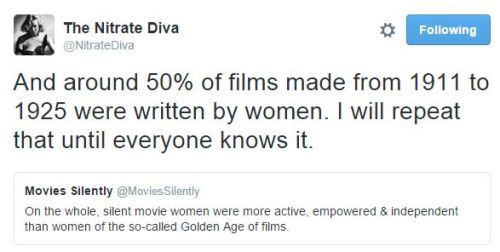
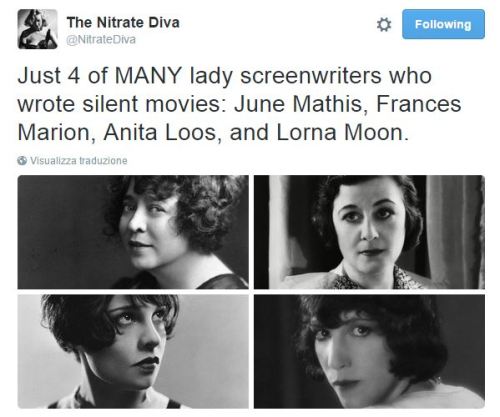
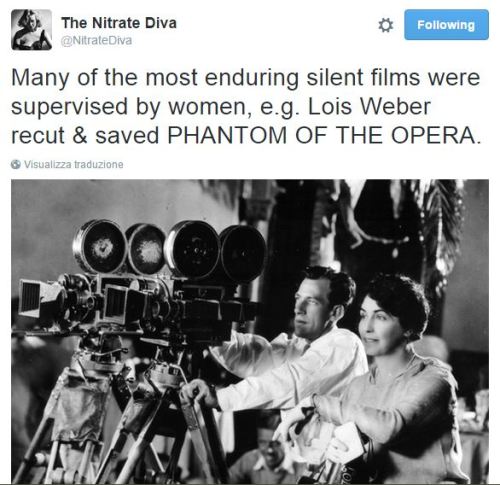

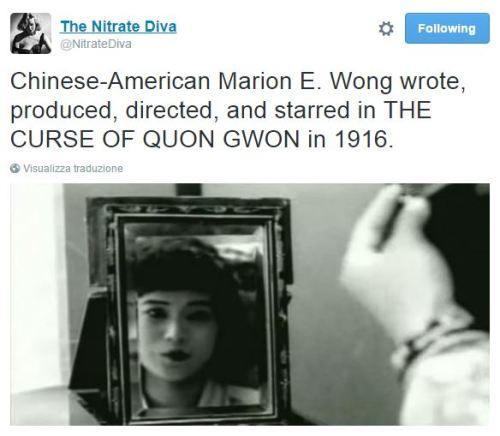
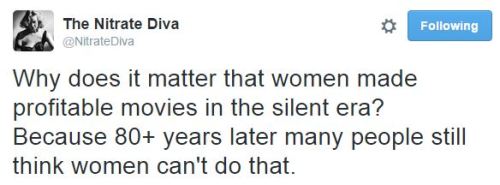
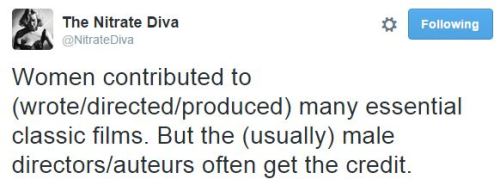
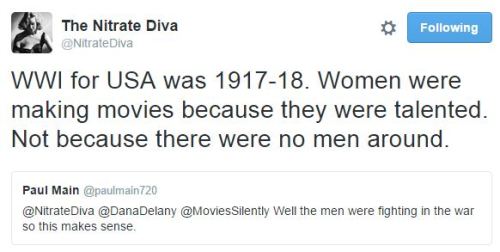
Today’s installment of why“but it has always been like this!” is a bullshit argument: @nitratediva lays down the law about the role of women in early Hollywood
@lovearyn But if I exercise too much and obtain looks that could kill then... 🤔




Legally Blonde (2001) Dir. Robert Luketic
-
 theluanacosta1 liked this · 3 months ago
theluanacosta1 liked this · 3 months ago -
 martialwriter liked this · 11 months ago
martialwriter liked this · 11 months ago -
 lyra-brie reblogged this · 1 year ago
lyra-brie reblogged this · 1 year ago -
 dolourstories liked this · 1 year ago
dolourstories liked this · 1 year ago -
 booksandwhatmore reblogged this · 1 year ago
booksandwhatmore reblogged this · 1 year ago -
 write-101 reblogged this · 1 year ago
write-101 reblogged this · 1 year ago -
 arachnidcakery liked this · 1 year ago
arachnidcakery liked this · 1 year ago -
 rsraimurasaki liked this · 1 year ago
rsraimurasaki liked this · 1 year ago -
 newdawnhorizon reblogged this · 1 year ago
newdawnhorizon reblogged this · 1 year ago -
 audreycecilemoore reblogged this · 1 year ago
audreycecilemoore reblogged this · 1 year ago -
 sprook-children liked this · 1 year ago
sprook-children liked this · 1 year ago -
 heckcareoxytwit reblogged this · 1 year ago
heckcareoxytwit reblogged this · 1 year ago -
 iwillhaveamoonbase liked this · 2 years ago
iwillhaveamoonbase liked this · 2 years ago -
 decptivon-90 reblogged this · 2 years ago
decptivon-90 reblogged this · 2 years ago -
 everlastent liked this · 2 years ago
everlastent liked this · 2 years ago -
 writers-coffee-pot reblogged this · 2 years ago
writers-coffee-pot reblogged this · 2 years ago -
 peachs-soft-loft liked this · 2 years ago
peachs-soft-loft liked this · 2 years ago -
 tritagonists liked this · 2 years ago
tritagonists liked this · 2 years ago -
 writingsmathing reblogged this · 2 years ago
writingsmathing reblogged this · 2 years ago -
 hipnaya7 liked this · 3 years ago
hipnaya7 liked this · 3 years ago -
 rhuemis liked this · 3 years ago
rhuemis liked this · 3 years ago -
 klosswrites reblogged this · 3 years ago
klosswrites reblogged this · 3 years ago -
 euphoniouspandemonium liked this · 3 years ago
euphoniouspandemonium liked this · 3 years ago -
 leadhelmetcosmonaut liked this · 3 years ago
leadhelmetcosmonaut liked this · 3 years ago -
 kittykaetze liked this · 3 years ago
kittykaetze liked this · 3 years ago -
 the-finch-address liked this · 3 years ago
the-finch-address liked this · 3 years ago -
 gamajun reblogged this · 3 years ago
gamajun reblogged this · 3 years ago -
 gamajun liked this · 3 years ago
gamajun liked this · 3 years ago -
 maguayans reblogged this · 3 years ago
maguayans reblogged this · 3 years ago -
 apocellipse liked this · 3 years ago
apocellipse liked this · 3 years ago -
 ryns-ramblings reblogged this · 3 years ago
ryns-ramblings reblogged this · 3 years ago -
 antihell liked this · 3 years ago
antihell liked this · 3 years ago -
 sheyshocked liked this · 3 years ago
sheyshocked liked this · 3 years ago -
 helvelloides-archive reblogged this · 3 years ago
helvelloides-archive reblogged this · 3 years ago -
 adastrals reblogged this · 4 years ago
adastrals reblogged this · 4 years ago -
 i-will-keep-on-dreaming liked this · 4 years ago
i-will-keep-on-dreaming liked this · 4 years ago -
 alinastarkovz reblogged this · 4 years ago
alinastarkovz reblogged this · 4 years ago -
 alinastarkovz liked this · 4 years ago
alinastarkovz liked this · 4 years ago -
 skellowmare liked this · 4 years ago
skellowmare liked this · 4 years ago

Sofia. She/her. Writer, thinker, listener, trans woman, and supporter of the Oxford Comma.
172 posts
